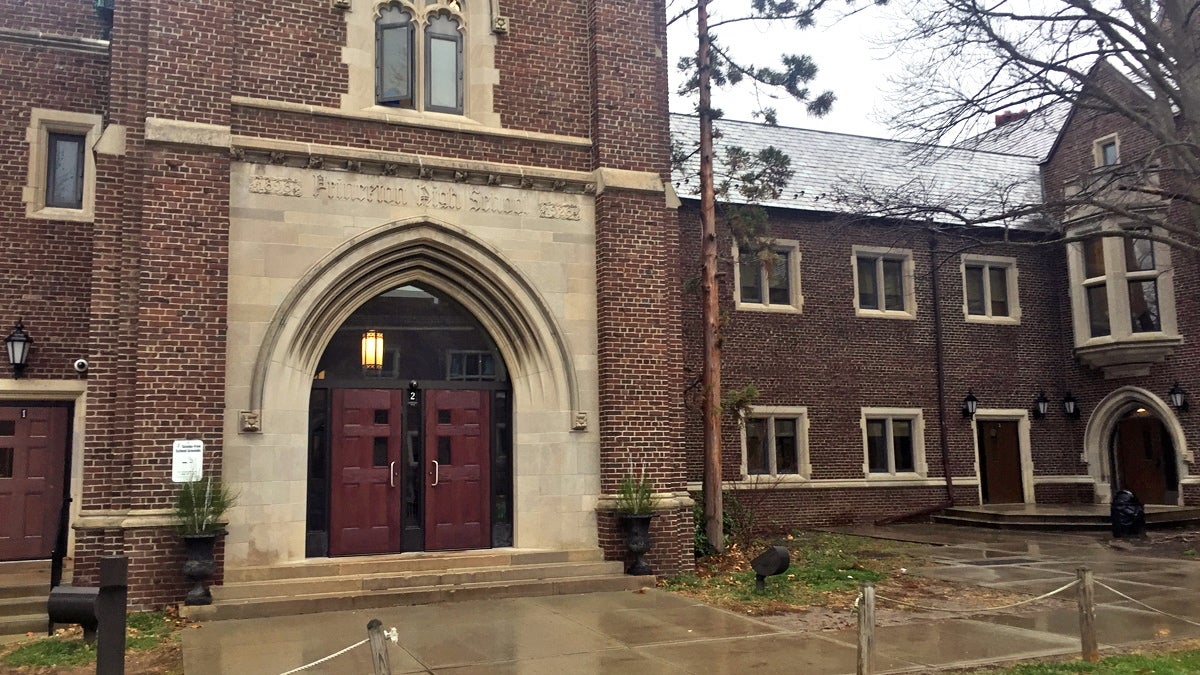Princeton school district policy codifies rights of transgender students
Listen
Princeton joins a growing list of public school districts across the country that have been adopting more explicit guidelines toward transgender and gender-nonconforming students. (Alan Tu/WHYY)
The Princeton Board of Education unanimously approved a policy this week that spells out the rights of transgender and gender-nonconforming students.
“I’m proud of representing a community in which these issues are not particularly controversial, where most people … say, ‘Of course we have to do what’s right for all the students. Of course we have to make our schools an inclusive, welcoming, healthy learning environment for all students,'” said Andrea Spalla, board president.
The policy defines several terms related to gender identity as a guide for staff members and students who may be unfamiliar with the issue and affirms the right of students to choose how they want to be identified by others, such as which pronouns to use.
It also states that students can choose which restrooms and locker rooms they want to use based on their gender identity.
Spalla said the policy is not meant to be used as a one-size-fits-all approach toward transgender and gender-nonconforming students, but rather as a roadmap for staff and students to follow when negotiating gender-identity issues at school.
“This is a policy about situations where nothing is really constant from case to case,” she said. “It’s a policy that tries to support the staff and respect basic principles for the students, but give everybody a lot of flexibility.”
In instituting the policy, Princeton joins a growing list of public school districts across the country that have been adopting more explicit guidelines toward transgender and gender-nonconforming students.
Omar Gonzalez-Pagan, an attorney with the LGBT rights group Lambda Legal, said Princeton’s policy is not the first of its kind but could serve as a model for other public school districts wishing to codify the rights of transgender students.
“This is a great, wonderful example of what we need to see across the country,” said Gonzalez-Pagan. “They’re being leaders on this.”
Statistics on transgender youth are scarce, but according to Gonzalez-Pagan, less than 1 percent of the general population identifies as transgender, while around 4 percent of homeless youth consider themselves transgender or gender nonconforming. Organizations that work with LGBT youth cite rejection from family and community members as a leading reason transgender youth end up homeless in the first place.
Spalla and Gonzalez-Pagan agreed that Princeton’s policy does not afford students any new rights not already covered by Title IX or New Jersey’s Law Against Discrimination. But proponents say that putting in writing what many schools already do in practice sends a strong message to communities at a time when interest in gender-identity issues is growing.
Aaron Potenza, director of programs at Garden State Equality, which helped draft the policy in Princeton, said he’s seen a spike in the last year of schools asking for help in dealing with transgender students.
“The hot-button topic, the thing people are interested to hear about, is they have transgender students, and they have questions about what to do in those situations,” he said.
The policy in Princeton will affect 3,500 students across four elementary schools, one middle school, and one high school.
WHYY is your source for fact-based, in-depth journalism and information. As a nonprofit organization, we rely on financial support from readers like you. Please give today.




